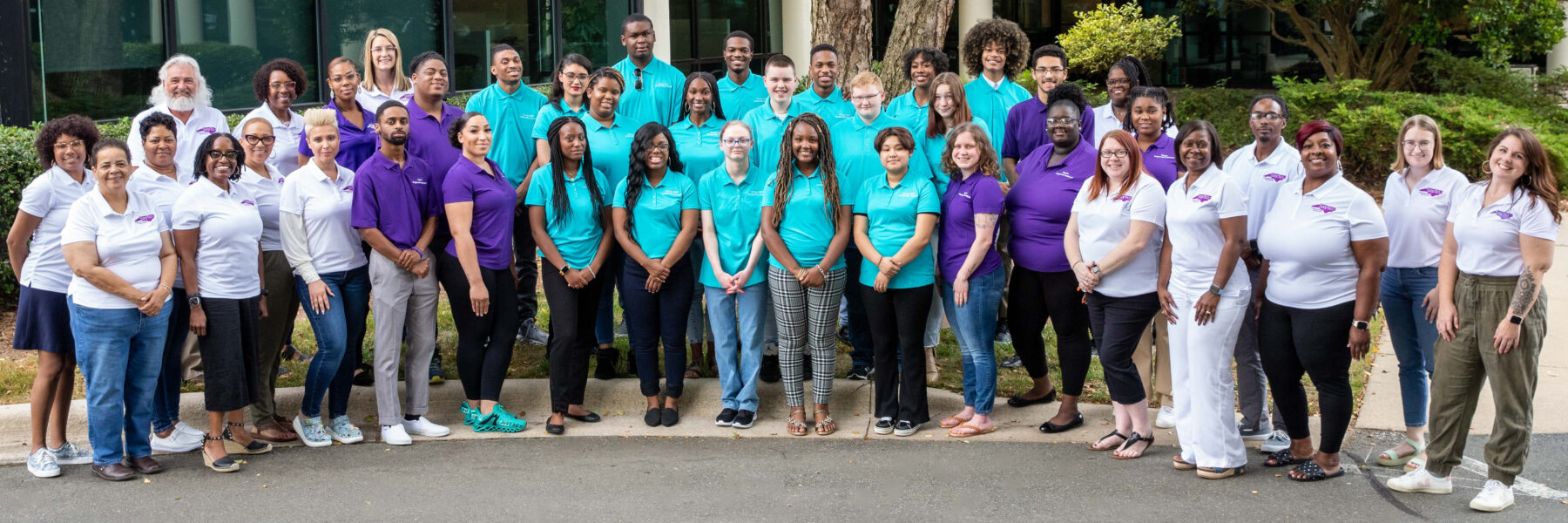Strong Able Youth Speaking Out (SaySo) is a youth-led advocacy program. SaySo has existed since 1998! Yes, the organization is 25 years old. SaySo is comprised of youth and young adults ages 14-26 who are or have been in out-of- home care.
The mission of SaySo is to work to improve the substitute care system by educating the community, speaking out about needed changes and providing support to youth that are or have been in substitute care.
When we were told the theme of this issue of Fostering Perspectives was the power of a supportive caregiver, SaySo leaned into our young adults to get their input.
SaySo has a Young Adult Leadership Council (YALC) that has 17 members in addition to alumni members that work for the program called SaySo Regional Assistants. These YALC members and Regional Assistants are from Pender, Moore, Halifax, Rutherford, Catawba, Gaston, Forsyth, Orange, Robeson, Wake, Pitt, Edgecombe, Cumberland, Mecklenburg, Durham, and Martin Counties.
During their most recent meeting, the YALC were asked about the power of a supportive caregiver, and this is what these young adults had to share:
What does a “supportive caregiver” mean to you?
- “Someone with genuine intentions, they want to see you do well and do not have selfish motives.”
- “Someone trustworthy. If you cannot trust your caregiver, then there is no one else you’ll lean on.”
- “A caregiver doesn’t always have to be the person caring for you or living in your house. It can be anyone in your community. It’s someone being there in your best and worst times.”
- “A caregiver doesn’t have to be blood.”
- “Someone who won’t judge you but will lovingly guide you while giving you space to express yourself.”
- “They are there when you don’t need them and when you do need them, they will know who to call.”
“Someone consistent.”
What does a caregiver’s support mean to you? What power do they have?
- “A supportive caregiver can give you more confidence in yourself. You don’t feel alone.”
- “They put life into a person. In the past, a person may not have always had that support but now that they do, the individual feels motivated.”
- “They are not going to pressure you into doing something.”
- “They can’t make someone do something. They gotta lead them in the right direction.”
- “A supportive person can encourage you, no matter if you’re right or wrong.”
- “They introduce you to new things, new ideas, different perspectives.”
- “God is my supporter and has kept me going and going and going.”
- “It’s having somebody in your corner who supports you and gives you a certain confidence when you get older”
- “They help me have more positive outlets for coping.”
Caregivers play an important role. They help to not only provide the physical needs but the emotional, social, psychological and well-being needs of youth in their care. Caregivers make a significant impact on the lives of the youth and young adults they care for. The companionship, support, and guidance they provide to young people can improve their quality of life and affect their over- all foster care experience. The power of a caregiver cannot be overstated. Their role is one of the most critical roles to supporting youth and families that have been impacted by the foster care system.


